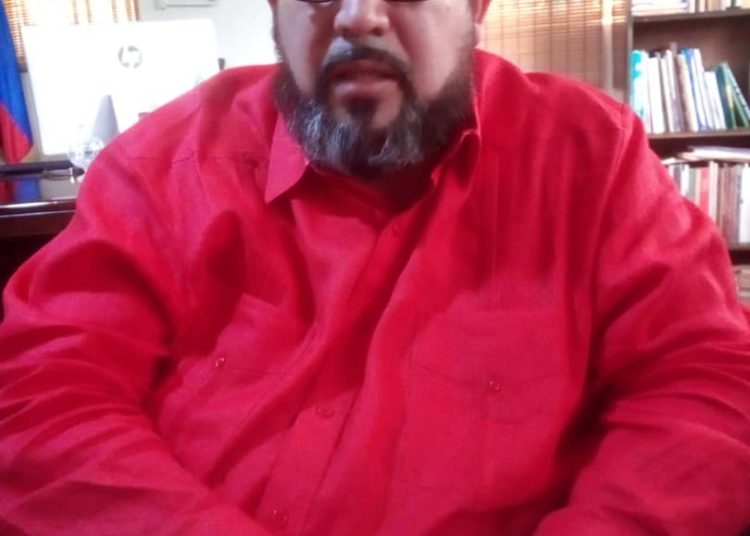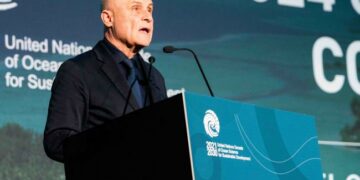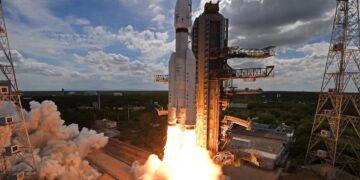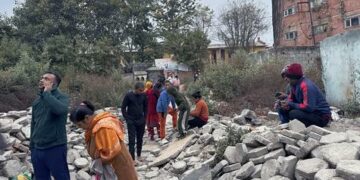What is the current level of bilateral relations between Nigeria and Venezuela?
Venezuela and Nigeria this year are marking 57 years of bilateral relationships. We have very strong relations in the multilateral institutions like Organisation of Petroleum Exporting Countries (OPEC) and United Nations institutions. We have very good relations in social areas like the cooperation in scholarship programs from Venezuela to Nigerian students. This manifested in the support to build Hugo Chavez primary school in Jankanwa in Nasarawa state. We work together in the Food and Agriculture Organization and Venezuela has offered technical support to more than 300 Nigerian rice farmers for some years until 2018.
We have been working together in the last three years despite the impact of the COVID-19 and despite the impacts of the unilateral coercive measures imposed by the United States against Venezuela. We have worked to increase and strengthen the level of bilateral knowledge. We are working in the Joint Meeting to explore other areas such as education, health, agriculture, culture and the economic sector like industry, oil and gas, which have enhanced interconnectivity between our regions and countries. However, one of the most important challenges is that Africa and Latin America don’t have a direct connection for flights or any other kind of transportation services.
In the human rights sector, the Ombudsman of Venezuela has interests to start relations with the National Human Right commission of Nigeria. We are also working together in the social, economic, trade, commerce and security areas.
So, what is the volume of trade between both countries?
In the area of trade and commerce, unfortunately the level of exchange is very low but we are working with the public and private sectors of Nigeria like NACCIMA, ACIM, the Lagos Chamber of Commerce or Port Harcourt Chamber of Commerce to work in the creation of a bilateral or binational business forum.
The idea is that this meeting be organized this year between the private sector in Venezuela and Nigeria and the public institutions both in the import and export processes. These include different areas like food services, personnel services in order to increase our trade and commerce. If we have direct connection by flights or by ship, we can use that opportunity to increase the level of bilateral exchange in trade and commerce.
After the difficult time caused by the pandemic, we are strengthening the capacities between both countries to connect with our people and our nations because we have historic relations. President Hugo Chavez and Nicolas Maduro established a very important base of bilateral relations between Venezuela and Africa in the process to build the African Continental Free Trade Agreement (AfCFTA).
After the difficult time caused by unilateral coercive measures we are recovering our economic and industrial capacity. Last year, we hit oil production of more than one million barrels per day. Remember we produced between 2 million and 800,000 per day before the sanctions but we fell to around 300,000 barrels per day because of the sanctions promoted by US Presidents; Barrack Obama, Donald Trump and now Joe Biden against Venezuela. The oil, gold Industry of Venezuela was affected so much but from 2021 we are beginning to have an economic recovery.
We controlled and stopped the hyper-inflation, we established different mechanisms to manage the economy because of the persecutions and sanctions against the Venezuelan Central Bank. Actually the minimum wage today is around $80 per month but before the sanctions the minimum wage was around $300 per month.
Now, we are working to recover to the same level. The social protection system worked very well throughout the most part of the last five or six years of the difficult time of the economy of Venezuela. We recovered the capacity of oil production, we recovered the capacity of refineries of the country and the economy is growing. Last year, we grew more than three percent and for this year Venezuela is working to expand economic capacity.
Nigeria has a robust ICT sector. In what ways will you cooperate with Nigeria to promote ICT?
We can do that in two levels -within our public institutions and also in the private sector to explore the opportunity. Venezuelan ICT sector is very strong and we can explore the capacities and complement each other. Both countries can help each other increase their capacities.
You talked about direct flights, can you throw more light on this?
One direct flight from Caracas to Lagos is eight hours. But today, if you have to go from Caracas to Abuja, normally we use Caracas to Istanbul which is 13 hours and then Istanbul to Abuja which is 6 hours, so you spend 19 hours in the flight. The only direct flight between Africa and Latin America is from Addis Ababa to Brazil via Ethiopian airlines.
If that is the case, why don’t we have direct flights and BASA agreement?
Actually, we are in a negotiation to sign that agreement between Venezuela and Nigeria. In Africa for instance, if I need to travel to Benin , I need to pass through Togo. One of the reasons for AfCFTA is the connection between our people and not only free movement of goods. We have CONVIASA as our airlines and we are ready to negotiate with Nigeria to open direct flights from Caracas to Nigeria.





